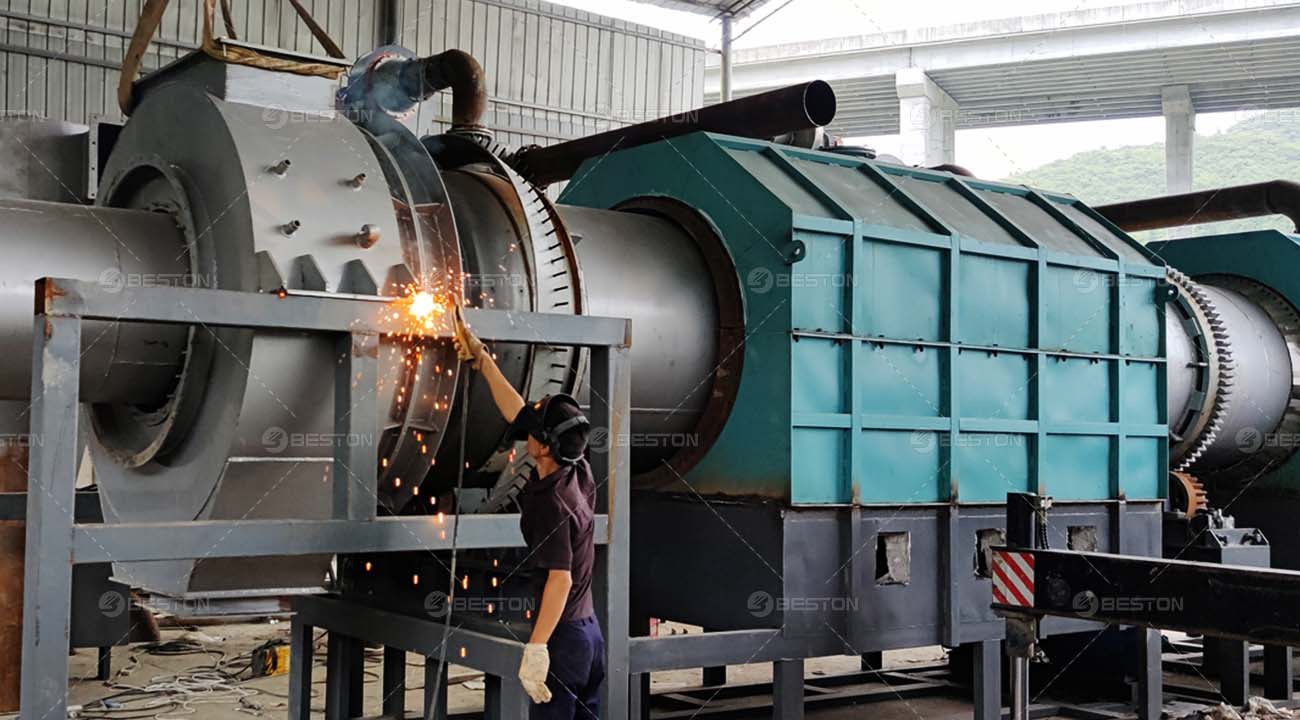Introduction to Wood Charcoal Making Machine
Definition and Functionality
Wood charcoal making machines are advanced devices designed to convert wood waste and other biomass materials into charcoal through a controlled pyrolysis process. These machines play a critical role in the wood processing industry, offering an efficient and sustainable method to manage wood waste and transform it into a valuable resource.
Importance in the Wood Processing Industry
The wood charcoal making machine is a specialized equipment that utilizes pyrolysis, a thermal decomposition process, to convert wood and biomass materials into charcoal. This involves heating the materials in a low or zero-oxygen environment to break them down into charcoal, bio-oil, and syngas, which can be utilized for various applications.
Features and Types of Wood Charcoal Making Machines
Different Types and Their Mechanisms
Wood charcoal making machines come in various types, including continuous, batch, and rotary kiln designs. Each type employs distinct mechanisms and processes for the pyrolysis of wood waste, allowing for flexibility in operations based on production needs and scale.
Key Features and Functionalities
These machines are equipped with features such as automatic temperature control systems, gas recycling mechanisms, and smoke purification systems. They are designed to ensure a controlled and efficient pyrolysis process while minimizing emissions and maximizing the yield of high-quality charcoal.
Advantages of Wood Charcoal Making Machines
Environmental Benefits
Utilizing wood charcoal making machines significantly contributes to environmental conservation by reducing wood waste and preventing it from being disposed of in landfills or burnt inefficiently. The controlled pyrolysis process helps in minimizing harmful emissions, contributing to cleaner air and reducing the carbon footprint.
Economic Advantages in Wood Processing
From an economic perspective, these machines offer wood processing industries a cost-effective way to repurpose wood waste into a valuable commodity. Charcoal produced can be used for heating, cooking, and as a valuable input material in various industries, generating additional revenue streams.

Utilization in the Wood Processing Industry
Charcoal Production from Wood Waste
The charcoal maker machine efficiently transform various wood residues such as sawdust, wood chips, and tree branches into high-quality charcoal. This process enables the utilization of waste materials that would otherwise be discarded, thus adding value to the entire wood processing chain.
Integration in Different Stages of Wood Processing
These machines find applications at different stages of wood processing - from sawmills generating sawdust to furniture manufacturers dealing with wood scraps. By integrating the charcoal making process into these stages, the industry can efficiently manage waste and extract maximum value from the raw material.
Efficiency and Sustainability Aspects
Process Efficiency and Productivity
Wood charcoal making machines demonstrate high efficiency in converting wood waste to charcoal. They operate with precision, ensuring maximum utilization of the input materials while optimizing the production process for consistent and high-quality charcoal output.
Sustainability and Impact on Waste Management
Through their ability to convert wood waste into a valuable resource, these machines contribute significantly to sustainable waste management. They not only reduce the volume of waste but also create an economically viable product from materials that would otherwise be discarded.
Future Trends and Innovations
Technological Advancements
Ongoing research and development efforts in this field are focused on enhancing the efficiency and environmental friendliness of wood charcoal making machines. Technological advancements aim to optimize the pyrolysis process, improve energy efficiency, and reduce emissions further.
Potential Enhancements and Adaptations in Wood Processing
Future innovations may witness the integration of these machines with other wood processing equipment, creating a more integrated and efficient wood production chain. This could lead to higher value extraction from raw wood materials and an overall reduction in waste generation.


Comments
No comments yet. Be the first to react!